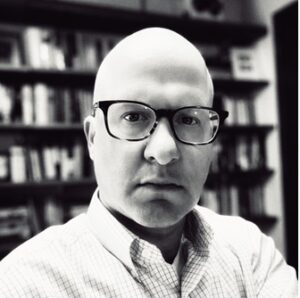How do we talk about historical commissions as instances of transitional justice?
Historical commissions are not a new phenomenon. The rise and popularity of the historical commission model took place throughout the nineties and early two-thousands – coinciding with the end of the Cold War – when professional historians took a new interest in engaging with the politics of the past. However, they have been increasingly framed as instances of transitional justice; and this is new. This paradigm shift has been particularly noticeable within consolidated democracies, where post-colonial states are increasingly facing pressures to come to terms with the legacies of their violent pasts.
In this episode, Prof. Tine Destrooper speaks with Dr. Cira Palli-Aspero, postdoctoral research fellow with Justice Visions, and Dr. Alexander Karn, from Colgate University, to explore the link between historical commissions and transitional justice, when these operate in consolidated democracies. We take a conceptual approach to first talk about how these commissions operate and what are their normative objectives; and second, to explore what are the implications of framing these historical commissions in consolidated democracies as instances of transitional justice, and especially the implications for the field of transitional justice.
“…what the historical commissions may help the field of transitional justice to understand is that you do not have sort of hard and fast dates that can be used to cleanly bracket injustice. There needs to be a willingness to think about how the conditions of injustice evolved and what legacies the injustice leaves going forward” – Alexander Karn.

Alexander Karn is Associate Professor of History and Peace and Conflict Studies at Colgate University (NY, USA). He has worked extensively on the politics of history in contemporary societies, on understanding historical dialogue and justice in transitional regimes and established democracies, and on the role of historical commissions in conflict mediation and reconciliation. He is the author of Amending the Past: Europe’s Holocaust Commissions and the Right to History (University of Wisconsin Press, 2015) and co-editor (with Elazar Barkan) of Taking Wrongs Seriously: Apologies and Reconciliation (Stanford University Press, 2006). Since 2014, he has been a member of the steering committee for the Historical Dialogues, Justice, and Memory Research Network (www.historicaldialogues.org).
Photo on the left: @ubahnverleih on Unsplash



